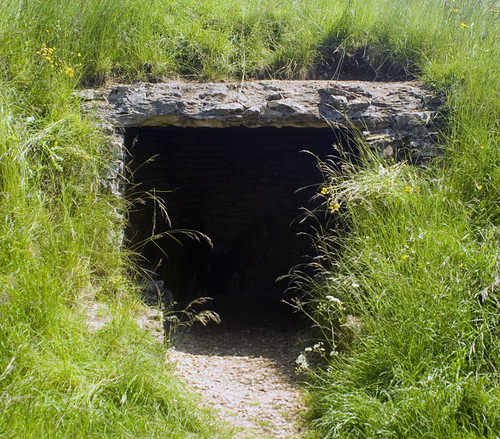In the spirit of comity, here is the proposal.
Melancholy Objects
Timothy Morton, UC Davis
Melancholy is an object-like presence that our psyche finds hard to digest. It is literally the footprint of another entity of whatever kind whose proximity was experienced as a trauma (the Freudian logic of the death drive). Melancholy by definition implies coexistence, which is why it's important for ecological thinking, since ecology is about coexistence thought as widely and as deeply as possible.
This coexistence need not be with sentient beings, nor even with lifeforms per se: it can include all entities (“objects” in my terminology) such as rocks, plutonium and carbon dioxide.
But just as importantly, melancholy doesn't imply anything about subjectivity. All you need for melancholy are various kinds of object. This is what makes it different, in traditional psychoanalytic theories, from other affects. Indeed, melancholy speaks a truth of all objects—I use the term “object” in a value-neutral way, implying any real entity whatsoever, not objectification or subject–object dualism.
In “Experience,” Emerson writes, “I take this evanescence and lubricity of all objects, which lets them slip through our fingers then when we clutch hardest, to be the most unhandsome part of our condition.” From there Cavell develops what he calls the “standoffishness” of objects. But melancholy doesn't require fully-formed subjectivity—indeed, subjectivity is a result of an abnegation of the melancholic abject, so it's a positive hindrance in this sense.
So we can generalize Cavell so that all objects are standoffish with regard to one another, not just to humans.
This means that the appropriate philosophy for an ecological era is an object-oriented ontology (OOO) that respects the withdrawn strangeness of objects while simultaneously 1) not discriminating against them in any way (reductionism, holism, anthropocentrism, biocentrism) and 2) allowing for their uncompromising unicity, the fact that they obtrude upon ourselves
and upon one another through time immemorial and the vastness of space.
My paper will show how OOO is deeply congruent with ecology, since the ecological age is what I call the time of hyperobjects: the moment in which human beings realize that they are enmeshed in a series of entities such as climate (and global warming) and evolution (and the plenum of lifeforms).
From here we can draw up a new ethical map that is neither utilitarian nor holistic—both systems fail in the face of hyperobjects, for reasons I shall outline. It is nonhuman (and even nonliving) entities that show us the way towards this new ethics.
By “standing in the place of the death drive,” as psychoanalysis would put it, humans have the chance to coexist nonviolently with other beings. Indeed, this traumatic coexistence is a better reading of the Freudian death drive than one that presents it as a simple existential human drama.


Thank you for posting your abstract; it sounds like a really interesting paper. I appreciate your distinction between OOO objects, objectification, and subject/object dichotomies; I've been working on ways to put these types of distinction in dialogue with contemporary US women-of-colors theorizing. I have a question: I’ve noticed that OOO seems to view holism with great suspicion. For instance, you write, “ the appropriate philosophy for an ecological era is an object-oriented ontology (OOO) that respects the withdrawn strangeness of objects while simultaneously 1) not discriminating against them in any way (reductionism, holism, anthropocentrism, biocentrism).” I can understand why reductionism, anthropocentrism, and biocentrism could be seen as discriminating against objects, but why holism? Or maybe I should be asking, what is the definition of holism you guys are using? Best, AnaLouise
ReplyDeleteThanks AnaLouise, I hope this new post helps to answer your very pertinent question.
ReplyDeleteMelancholy, as you suggest, does seem to entail some sort of blockage (the proprioceptive experience of black bile seems to confirm this). Could melancholy besome sort of touch of the Real, then? an internal, inexpressible core of Being that resists symbolization (drive is silent). I’ve been interested in this idea of an ecology of melancholy for a while now, and I was wondering if we might understand melancholy/black bile as the unconscious itself, i.e. as a series of disjunctive syntheses that has to keep breaking down/recording (hence all the repetition-record dialectic of the Petrarchan mode).
ReplyDeleteThe problem here is that melancholy, on a certain level, doesn’t resist symbolization, for it is itself symbolized and understood as a faulty interaction within a body, a disequilibrium that soon encounters some sort of medical discourse that wants to undo it. How then do we understand an ecology of melancholy if it seen as an “inhuman” state of being (becoming-soil, becoming-solid, to use Hamlet’s rendering). Could melancholy, as I am exploring in my work, be intensified and therefore used towards some purpose, some line of flight? Becoming-melancholic may be seen as a sort of refusal of symbolization, a retreat back to some primal state (hence the identification with stasis and this question of silence) or, as stated above, a touch of the Real, a breakdown in symbolization. It may be for this reason that we see the repetition of the approach to the object again and again in the Petrarchan mode. The excess of the outer oikos (the solar anus at opening of Shakespeare’s sonnets) causes melancholic hypergraphia: the symbolic breaks down not because of some lack, but because of an excess, an overdetermination of logos. Therefore, these concepts of blockage in the discourse on melancholy entail precisely this symbolic breakdown and point towards some internal element that, as you suggested with your comments on melancholy and trauma, could be the the inauguration of the double-bind, the subject floating between symbolization and melancholic stasis, a body without organs.
I’d be interested to read/hear your paper on melancholic objects. As a student struggling to apply some of these concepts to Shakespeare, any advice/direction you can point me in on these questions concerning melancholy would be greatly appreciated.
Charles Mock
charles.mock@gmail.com